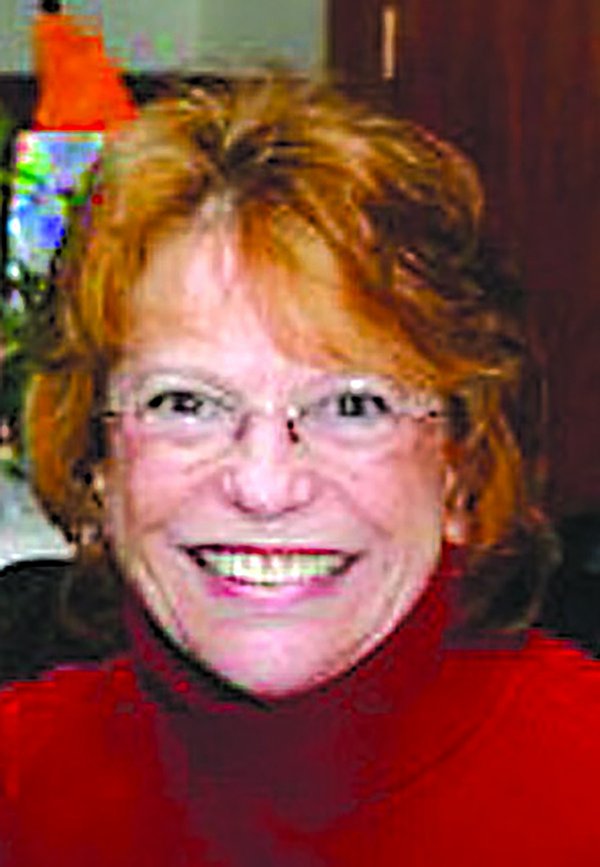Zenker’s diverticulum makes swallowing difficult
You know that I’m a magnet for people telling me what’s wrong with them. Recently, I had two women tell me that they suffer from dysphagia, which is the medical term for having difficulty swallowing, and that they were going through tests to find out why. I was surprised to learn that after consults with their primary care providers, it was determined that they both suffer from Zenker’s diverticulum. Of course, I had to learn more.
This condition, which more often affects men than women, is estimated to occur in about two out of 100,000 people. It’s typically seen in people aged 70 to 90 and those who suffer from chronic reflux.
So, what exactly is it? Temple Health (a subsidiary of Temple University in Philadelphia) describes it as a small sac or pouch that forms in the digestive tract.
“A Zenker’s diverticulum occurs when a pouch forms at a weak spot where the pharynx (the passage back of the throat) meets the esophagus. Zenker’s diverticulum is thought to be a disorder of the upper esophageal sphincter, the opening through which food enters the stomach.
“It develops when the cricopharyngeal muscle, located near the upper esophageal sphincter, doesn’t relax as it should. As a result, the upper esophageal sphincter doesn’t open properly, and pressure begins to build up in the pharynx when someone swallows. If a weak spot exists in their pharynx, a diverticulum could develop,” Temple Health explains.
It was first described in 1877 by German pathologists Friedrich Albert von Zenker and Hugo Wilhelm von Ziemssen. However, the National Institutes on Health says that it was first observed by Abraham Ludlow in 1679. Why it was named for Zenker, and not the others, is anyone’s guess.
WebMD says that ninety percent of people with Zenker’s diverticulum have difficulty swallowing both solids and liquids. “Some other common symptoms include weight loss; halitosis (bad breath) due to food being stuck in the pouch; a persistent cough, especially at nighttime; regurgitation of undigested food; hoarse voice or change in voice; aspiration that can lead to pneumonia; gurgling noises; and feeling like something is stuck in the throat.”
They also say that if your PCP thinks that you may have Zenker’s diverticulum, they’ll most likely order a test called an esophagram or barium swallow. In this test, barium is used to fill the pouch so it can be seen in X-ray pictures.
“Another test for diagnosing Zenker’s diverticulum is an upper endoscopy. An endoscopy gives your doctor a look at the pouch and how big it is. The last possibility when it comes to diagnosing Zenker’s diverticulum is esophageal manometry. This is a test that studies the pressure inside of your esophagus.
Treatment is determined by the size of the pouch and the severity of symptoms. Mild cases can be managed by how and what you eat.
“If your diverticulum isn’t large enough to require surgery, one thing that you can do is to make sure that you fully chew your food so that it’s easier to swallow,” WebMD says. “After eating, be sure to drink water to flush down any food that might be stuck in your throat. Cutting out spicy and acidic foods may also help reduce your symptoms.”
You should stay away from nuts, seeds, and skins since they can get stuck in your throat, and eating a diet of soft foods may help you to swallow better. But don’t stop eating. One of the risks of Zenker’s diverticulum is malnutrition.
Cleveland Clinic says that moderate to severe cases may require surgery. “Zenker’s diverticulum surgery involves removing, moving or altering the pouch in your throat so it doesn’t trap food.” Your surgeon will recommend whether surgery should be by an incision in your neck, or by endoscopic instruments.
As in any surgery, there are possibilities of complications. I’ll let your surgeon explain those. What I will tell you is that Cleveland Clinic says the outlook is good for recovery. However, they say that it is possible for Zenker’s diverticulum to return after surgery. “That’s because the condition happens when there’s an issue with how your throat muscles work.”
Kathy Hubbard is a member of the Bonner General Health Foundation Advisory Council. She can be reached at kathyleehubbard@yahoo.com.



